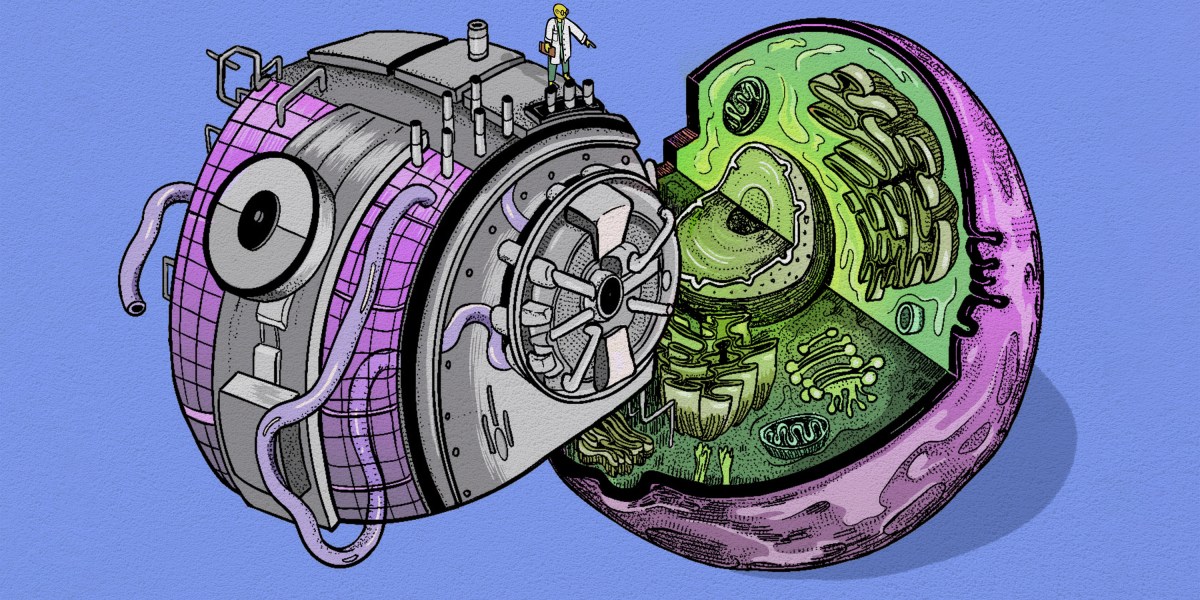Already, analysis groups have made discoveries utilizing these well-curated information units. One found that the damaged gene linked to cystic fibrosis is expressed by a kind of cell scientists had by no means come throughout earlier than, whereas one other recognized the respiratory cells which might be most weak to SARS-CoV-2. Others are utilizing the info to find new choices for splicing genes to doubtlessly right disease-causing mutations in particular cells.
These discoveries are step one in growing remedies for ailments—and we consider that AI can considerably pace up researchers’ charge of discoveries going ahead.
The compute
To create a digital cell, we’re constructing a high-performance computing cluster with 1000+ H100 GPUs that can allow us to develop new AI fashions educated on numerous massive information units about cells and biomolecules—together with these generated by our scientific institutes. Over time, we hope, this can allow scientists to simulate each cell kind in each wholesome and diseased states, and question these simulations to see how elusive organic phenomena probably play out—together with how cells come into being, how they work together throughout the physique, and the way precisely disease-causing modifications have an effect on them.
Our computing cluster gained’t be as massive as these used within the personal sector for industrial merchandise, however as soon as it’s up and working, will probably be one of many world’s largest AI clusters for nonprofit scientific analysis. This shall be an necessary useful resource for educational groups which might be prepared to make use of information units in new methods however are held again by the prohibitive value of accessing the most recent AI know-how. Like our different instruments, these digital cell fashions, and their related information and purposes, shall be brazenly accessible to researchers worldwide.
The individuals
Producing these information units, constructing this computing cluster, and utilizing AI for biology is the type of multidisciplinary, collaborative effort that defines our work.
Our Biohub Community has introduced collectively specialists from totally different disciplines and establishments to deal with a few of science’s largest and riskiest challenges, which couldn’t be solved in conventional educational settings. By way of tasks like CELLxGENE, researchers around the globe have helped construct a single-cell information corpus—a testomony to how successfully a shared useful resource for open science can develop with extra collaborators contributing assets and brainpower.
When CZI first launched our science work in 2016, we dedicated to a giant aim: to assist the scientific neighborhood treatment, stop, or handle all illness by the tip of this century. We consider this aim is feasible and shall be considerably superior if main scientists and technologists work collectively to benefit from the alternatives created by AI. We will begin by unlocking the mysteries of our cells, and that may result in work that helps finish many ailments as we all know them.
Priscilla Chan is cofounder and co-CEO of the Chan Zuckerberg Initiative. Priscilla’s work with sufferers and college students in communities throughout the Bay Space as a pediatrician and trainer has knowledgeable her want to make studying extra personalised, discover new paths to handle and treatment illness, and develop alternative for extra individuals. Priscilla earned her BA in biology at Harvard College and her MD at UC San Francisco (UCSF).
Mark Zuckerberg is cofounder and co-CEO of the Chan Zuckerberg Initiative. Because the founder, chairman, and chief govt officer of Meta, Mark brings a dedication to empowering individuals and constructing communities, and deep technical expertise, to CZI’s work. Mark studied pc science at Harvard College earlier than shifting to Palo Alto, California in 2004.

